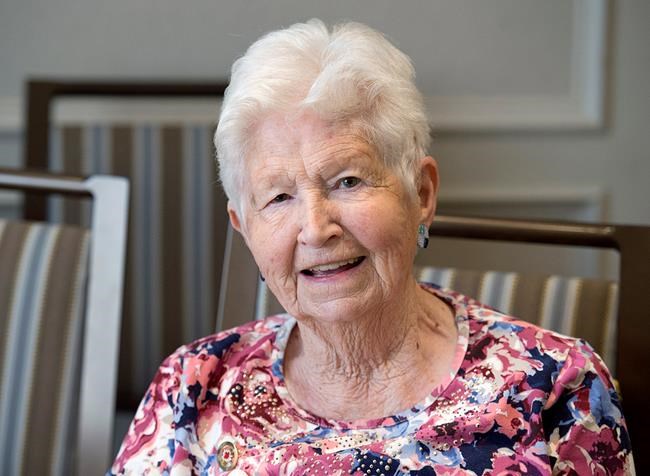Elevate your local knowledge
Sign up for the iNFOnews newsletter today!
Sign up for the iNFOnews newsletter today!
Selecting your primary region ensures you get the stories that matter to you first.

HALIFAX – Joan Reichardt remembers her voyage from England to Canada in 1946 not as frightening or lonely, but as an “armada of optimism,” surrounded by hundreds of young women who were also leaving the comforts of home to follow a new husband to a new home in Canada.
“It was this group of young women who had all been through six years of war, and sort of by a strange trick of fate, had met a man from another country,” said Reichardt, now 88, in an interview Friday.
“The whole enterprise, in a way, was fuelled by love.”
Reichardt is one of dozens of war brides from across Canada who gathered in Halifax for a reunion event that will include a return to the port where the majority of them landed 70 years ago.
Up to 48,000 women met and married Canadian soldiers abroad during the Second World War, leaving the war in Europe to follow their husbands back to Canada.
When the war brides came to Canada to reunite with their husbands, many of them passed through Pier 21 in Halifax, where they’ll meet on Saturday.
Reichardt met her husband, John Reichardt, at 17 while he was serving in England with the Royal Canadian Electrical and Mechanical Engineers. After one year of marriage, she boarded a ship with about 250 other women and set off for an unfamiliar country.
After a nine-day journey, the Lady Rodney arrived on Canada’s East Coast. Reichardt says Halifax looked like “a toy land,” the houses bursting with colours that were unfamiliar after the drab tones of wartime England.
She discovered her new home by train, passing through Canada’s “wild and unkempt” countryside as she made her way to Saskatoon, Sask.
At the station, Reichardt saw her husband out of uniform for the first time.After that, Joan and John Reichardt were rarely apart, until he died 51 years later.
Reichardt says some of the war brides had difficulty adjusting and felt homesick, which is why gatherings like this weekend’s are so important.
“Nobody has a clue of what it was like to be a war bride except another war bride,” Reichardt says. “We are a historical anomaly.”
At 88, Reichardt says does not know how many trips she has left. Every reunion, she says, the number of war brides dwindles as travel becomes more difficult and friends pass away.
The great-grandmother says she is passing the torch down to her children, who helped organize the weekend event.
Reichardt estimates one in every 30 Canadians descends from a war bride, and hopes that their legacy will live on in them.
“It takes a whole lot of energy to organize these things,” she said. “The whole, sneaky hidden agenda here is that the children, particularly our daughters … will carry on and keep this going.”
This site is protected by reCAPTCHA and the Google Privacy Policy and Terms of Service apply.
Want to share your thoughts, add context, or connect with others in your community?
You must be logged in to post a comment.